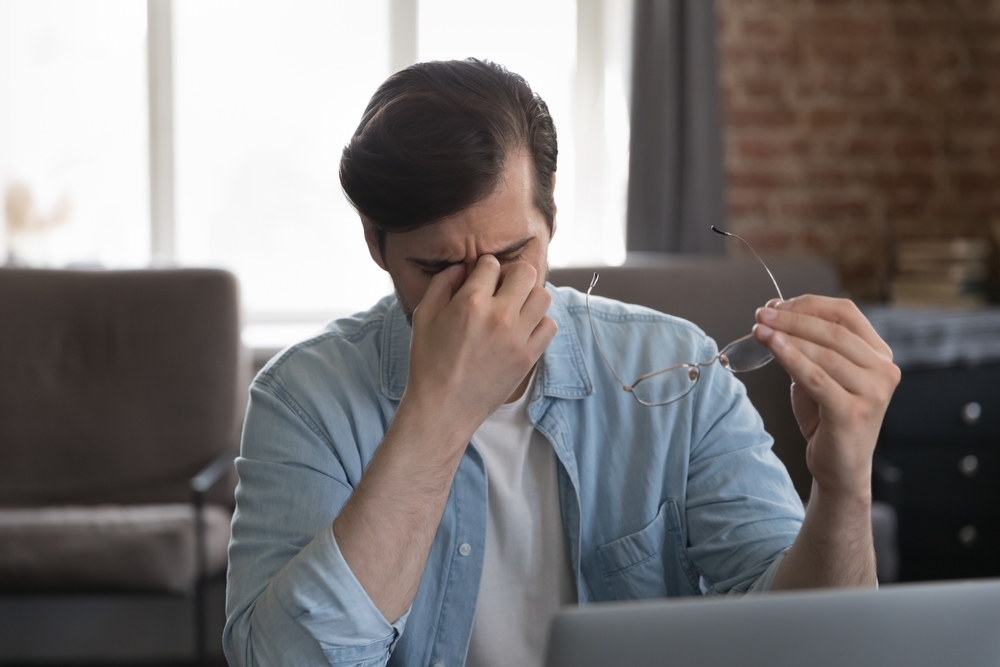
Understanding the Connection Between Binocular Vision Dysfunction (BVD) and Concussions
Concussions are traumatic brain injuries that can significantly impact a person’s physical and cognitive functions. While most people associate concussions with headaches, dizziness, or memory problems, the connection between concussions and vision issues is often overlooked. One of the most common visual problems linked to concussions is binocular vision dysfunction (BVD). For those affected, vision therapy offers a path to recovery, helping individuals restore proper vision alignment and improve overall quality of life.
What Is Binocular Vision Dysfunction (BVD)?
Binocular vision dysfunction occurs when both eyes are unable to work together effectively as a team. This misalignment can lead to a range of symptoms, including double vision, blurry vision, headaches, difficulty focusing, and eye strain. BVD often becomes noticeable after a head injury, such as a concussion, because the trauma can disrupt the muscles and nerves responsible for eye coordination.
When the brain is impacted during a concussion, it may have difficulty processing visual information and controlling eye movements. As a result, BVD can emerge, making everyday tasks like reading, using a computer, or even walking, challenging.
How Does a Concussion Trigger BVD?
Concussions can cause damage to various parts of the brain, including areas responsible for processing visual information and controlling eye movements. When these areas are injured, it disrupts the communication between the brain and the eyes, resulting in BVD. In particular, the cranial nerves that control eye movements may become impaired, leading to symptoms such as:
• Double vision or blurred vision
• Difficulty reading or concentrating
• Eye strain or fatigue, especially after visual tasks
• Dizziness or motion sickness
• Headaches that worsen with visual tasks
• Difficulty judging distances or depth perception
Many individuals don’t realize that their post-concussion symptoms could be related to vision issues, as these symptoms can often mimic those of the concussion itself.
The Role of Vision Therapy in Treating BVD
Vision therapy is a non-invasive, effective treatment for binocular vision dysfunction, especially for those experiencing symptoms after a concussion. The goal of vision therapy is to retrain the eyes and brain to work together more effectively. It involves a series of personalized exercises and activities designed to strengthen the eye muscles and improve visual processing.
Here’s how vision therapy can help:
• Improves Eye Coordination: Through specific exercises, vision therapy helps the eyes learn to work together again, reducing issues like double vision and eye strain.
• Strengthens Eye Muscles: Concussions can weaken the muscles that control eye movement. Vision therapy exercises target these muscles to restore proper function and alignment.
• Enhances Depth Perception: Difficulty with depth perception is a common complaint among those with BVD. Vision therapy can improve spatial awareness, making it easier to judge distances and navigate through spaces.
• Reduces Headaches and Eye Strain: By improving visual alignment and reducing the effort required to focus, vision therapy can alleviate headaches, eye strain, and other discomforts caused by BVD.
• Restores Visual Focus and Concentration: Many patients with BVD struggle to focus on tasks, especially those requiring sustained visual attention, such as reading or using digital devices. Vision therapy helps improve focus and reduces fatigue during these activities.
A Personalized Approach to Recovery
At Eye Therapy Vision Rehabilitation Center, we specialize in diagnosing and treating BVD through personalized vision therapy programs that can help restore balance and improve quality of life. We understand that every patient’s recovery is unique, and tailor programs to meet the specific needs of individuals with BVD following a concussion.
If you’re experiencing any post-concussion visual issues, contact Eye Therapy Vision Rehabilitation Center to schedule a consultation and take the first step toward clearer, more comfortable vision. Visit our Lantern Lane location in Houston (713) 324-8889, Sealy office (281) 404-9191, Energy Corridor (281) 741-7295, or Pasadena, Texas (281) 445-2021 to book an appointment today.






